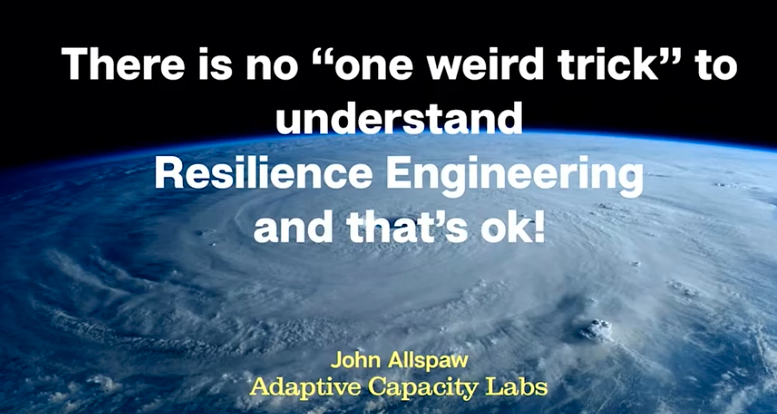I had to take up the challenge of speaking about Resilience Engineering at an Ignite talk that I gave at the always excellent NYC DevOpsDays.
Here’s the abstract for this 5 minute talk:
Of course the answer to the question in the title is “no” because this twenty-year old multidisciplinary field is as broad and deep as Distributed Systems. Bringing perspectives, methods, and concepts from Resilience Engineering is a long game; my goal is to whet your appetite and lay down enough compelling threads for you to pull on as this important long game unfolds.
Here’s the video:
